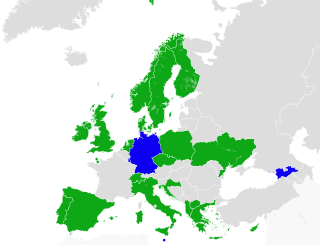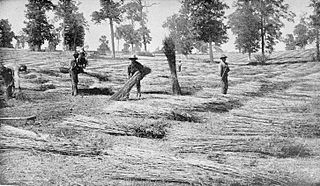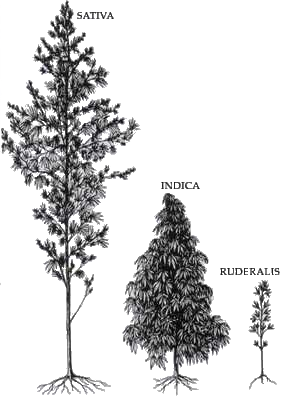Related Research Articles

A cannabis edible, also known as a cannabis-infused food or simply an edible, is a food item that contains decarboxylated cannabinoids from cannabis extract as an active ingredient. Although edible may refer to either a food or a drink, a cannabis-infused drink may be referred to more specifically as a liquid edible or drinkable. Edibles are a way to consume cannabis. Unlike smoking, in which cannabinoids are inhaled into the lungs and pass rapidly into the bloodstream, peaking in about ten minutes and wearing off in a couple of hours, cannabis edibles may take hours to digest, and their effects may peak two to three hours after consumption and persist for around six hours. The food or drink used may affect both the timing and potency of the dose ingested.

Hemp oil is oil obtained by pressing hemp seeds. Cold pressed, unrefined hemp oil is dark to clear light green in color, with a nutty flavor. The darker the color, the grassier the flavour. It should not be confused with hash oil, a tetrahydrocannabinol-containing oil made from the Cannabis flower.

Cannabidiol (CBD) is a phytocannabinoid discovered in 1940. It is one of 113 identified cannabinoids in cannabis plants, along with tetrahydrocannabinol (THC), and accounts for up to 40% of the plant's extract. As of 2022, clinical research on CBD included studies related to the treatment of anxiety, addiction, psychosis, movement disorders, and pain, but there is insufficient high-quality evidence that cannabidiol is effective for these conditions. CBD is also sold as a herbal dietary supplement promoted with unproven claims of particular therapeutic effects.
Alex White Plume is the former vice president and president of the Oglala Sioux Tribe of the Pine Ridge Reservation, located on South Dakota of the United States. He served as president from June 30, 2006 to November 2006 after Cecilia Fire Thunder was impeached.

THC-O-acetate is the acetate ester of THC. The term THC-O-acetate and its variations are commonly used for two types of the substance, dependent on which cannabinoid it is synthesized from. The difference between Δ8-THC and Δ9-THC is bond placement on the cyclohexene ring.

Ross Rebagliati is a Canadian snowboarder who won a gold medal in the men's giant slalom event at the 1998 Winter Olympics. The International Olympic Committee initially stripped him of the medal due to a failed drug test for cannabis use, but was overruled by an appeals court two days later, resulting in the medal being restored. Since retiring from snowboarding, Rebagliati has become an entrepreneur in the cannabis industry.

Cannabis strains are either pure or hybrid varieties of the plant genus Cannabis, which encompasses the species C. sativa, C. indica, and C. ruderalis.

Cannabis in Switzerland is illegal, though minor possession was decriminalised to a fine in 2012. Several cantons began to allow adults to cultivate and use cannabis in 2012, but this was struck down by federal courts. In 2016, four cities stated they were looking into establishing pilot cannabis clubs. The number of cannabis users in Switzerland is estimated to be around 500,000 among a population of 8 million.

Hash oil or cannabis oil is an oleoresin obtained by the extraction of cannabis or hashish. It is a cannabis concentrate containing many of its resins and terpenes – in particular, tetrahydrocannabinol (THC), cannabidiol (CBD), and other cannabinoids. Hash oil is usually consumed by smoking, vaporizing or eating. Preparations of hash oil may be solid or semi-liquid colloids depending on both production method and temperature and are usually identified by their appearance or characteristics. Color most commonly ranges from transparent golden or light brown, to tan or black. There are various extraction methods, most involving a solvent, such as butane or ethanol.

Charlotte's Web is a brand of high-cannabidiol (CBD), low-tetrahydrocannabinol (THC) products derived from industrial hemp and marketed as dietary supplements and cosmetics under federal law of the United States. It is produced by Charlotte's Web, Inc. in Colorado. Hemp-derived products do not induce the psychoactive "high" typically associated with recreational marijuana strains that are high in THC. Charlotte's Web hemp-derived products contain less than 0.3% THC.

Cannabis in Wisconsin is illegal for recreational use. Possession of any amount is punishable by up to 6 months in prison and a $1000 fine for a first offense. A second offense is punished as a felony with up to 3.5 years in prison and up to a $10,000 fine. At the local level, however, numerous municipalities and counties have decriminalized cannabis or lessened penalties for minor possession offenses. Medical use is legal only in the form of low-THC cannabis oil.

Cannabis in Iowa is illegal for recreational use if classified as marijuana but consumable hemp products including CBD products are legal for consumers to possess and registered retailers to sell. Possession of even small amounts of marijuana is a misdemeanor crime. The state has a medical program for patients with qualifying debilitating medical conditions that allows for the legal sale and possession of no more than 4.5g of THC per patient every 90-day period. Allowed modes of consumption are oral & topical forms including, but not limited to; tablets and tinctures, nebulizable inhalable forms, suppositories, and vaporization.

Cannabis in Texas is illegal for recreational use. Possession of up to two ounces is a class B misdemeanor, punishable by up to 180 days in prison and a fine of up to $2000. Several of the state's major municipalities have enacted reforms to apply lesser penalties or limit enforcement, however.

Kentucky was the greatest producer of hemp in the United States during the 19th and 20th centuries, when it was the source of three fourths of U.S. hemp fiber. Production started to decline after World War I due to the rise of tobacco as the cash crop in Kentucky and the foreign competition of hemp fibers and finished products. In 1970, federal policies virtually banned the production of industrial hemp during the war on drugs saying all Cannabis sativa is a Schedule I controlled substance. Federal law under the Agricultural Act of 2014 allowed research back into hemp. Kentucky began production again with 33 acres in 2014. As of the 2016 harvest season, only two U.S. states other than Kentucky had over 100 acres (40 ha) in hemp production: Colorado and Tennessee. The first 500-acre commercial crop was planted in Harrison County in 2017, and research permits were issued for over 12,000 acres (4,900 ha) that year. The 2016 documentary Harvesting Liberty concerns the 21st century Kentucky hemp industry.

Cannabis concentrate, also called marijuana concentrate, marijuana extract, or cannabis extract, is a tetrahydrocannabinol (THC) and/or cannabidiol (CBD) concentrated mass. Cannabis concentrates contain high THC levels that range from 40% to over 90%, stronger in THC content than high-grade marijuana, which normally measures around 20% THC levels.
Hemp paper is a paper variety consisting exclusively or to a large extent from pulp obtained from fibers of industrial hemp. The products are mainly specialty papers such as cigarette paper, banknotes and technical filter papers. Compared to wood pulp, hemp pulp offers a four to five times longer fibre, a significantly lower lignin fraction as well as a higher tear resistance and tensile strength. Because the paper industry's processes have been optimized for wood as the feedstock, production costs currently are much higher than for paper from wood.
The Hemp Farming Act of 2018 was a proposed law to remove hemp from Schedule I controlled substances and making it an ordinary agricultural commodity. Its provisions were incorporated in the 2018 United States farm bill that became law on December 20, 2018.

The following outline is provided as an overview of and topical guide to the plant Cannabis sativa and its relatives Cannabis indica and Cannabis ruderalis, the drug cannabis (drug) and the industrial product hemp.
Hemp Industries Association v. Drug Enforcement Administration, often shortened to HIA v. DEA, refers to two lawsuits concerning the legality of cannabis extracts and other products from the hemp plant that have very low or nonexistent natural THC levels, including CBD oil, in the United States. The first is from 2004 and the second is from 2018.

Δ-8-tetrahydrocannabinol is a psychoactive cannabinoid found in the Cannabis plant. It is an isomer of delta-9-tetrahydrocannabinol, the compound commonly known as THC, with which it co-occurs in hemp; natural quantities of ∆8-THC found in hemp are low.
References
- 1 2 Deardorff, Julie (January 27, 1995). "Hemp Dreams". Chicago Tribune . Retrieved May 17, 2019.
- ↑ T. Brown, David (1998). Cannabis: The Genus Cannabis. CRC Press. p. 123. ISBN 90-5702-291-5 – via Google Books.
- ↑ Conrad, Christopher P. M. (2013). "Curriculum Vitae as court-qualified expert witness". chrisconrad.com. Archived from the original on May 11, 2015. Retrieved May 25, 2015.
- ↑ Sloman, Larry "Ratso" (1998). Reefer Madness: A History of Marijuana . St. Martin's Press. p. 430. ISBN 0-312-19523-0 – via Internet Archive.
- ↑ Roig-Franzia, Manuel (May 13, 2010). "Hemp fans look toward Lyster Dewey's past, and the Pentagon, for higher ground". The Washington Post . Washington DC: WPC. ISSN 0190-8286 . Retrieved May 25, 2015.
- ↑ Hobbs, Jen Hobbs (2019). American Hemp: How Growing Our Newest Cash Crop Can Improve Our Health, Clean Our Environment, and Slow Climate Change. Simon and Schuster. p. 47. ISBN 978-1-5107-4329-8 – via Google Books.
- ↑ Smith, Jordan (May 19, 2010). "Hempsters Take D.C." The Austin Chronicle . Retrieved May 17, 2019.
- ↑ Jones, Whitney (July 25, 2014). "Hemp Oil Not a Source of CBD Which Could Be Used in Epilepsy Treatments". WKMS-FM . Retrieved May 17, 2019.
- ↑ "Information: Legal Cases: DEA Hemp Food Rules". votehemp.com. 2014. Retrieved May 25, 2015.
- ↑ Scaccia, Annamarya (April 19, 2017). "Hemp Wars: Inside the Fight for Federally Legal CBD". Rolling Stone . Retrieved May 17, 2019.
- ↑ "Hemp Industries Association USA LLC V. Drug Enforcement Administration". FindLaw . February 6, 2004. Retrieved May 25, 2015.
- ↑ Chepesiuk, Ron (February 16, 2005). "U.S. Hemp Industry Wins Battle with DEA". newstandardnews.net. Archived from the original on February 17, 2005. Retrieved May 17, 2019.
- ↑ Keahey, Colleen (June 8, 2018). "Hemp Industries Association Reaches Settlement with DEA and Affirms Victory from 2004 Hemp Foods Rules Challenge". Hemp Industries Association. Archived from the original on May 17, 2019. Retrieved May 17, 2019.